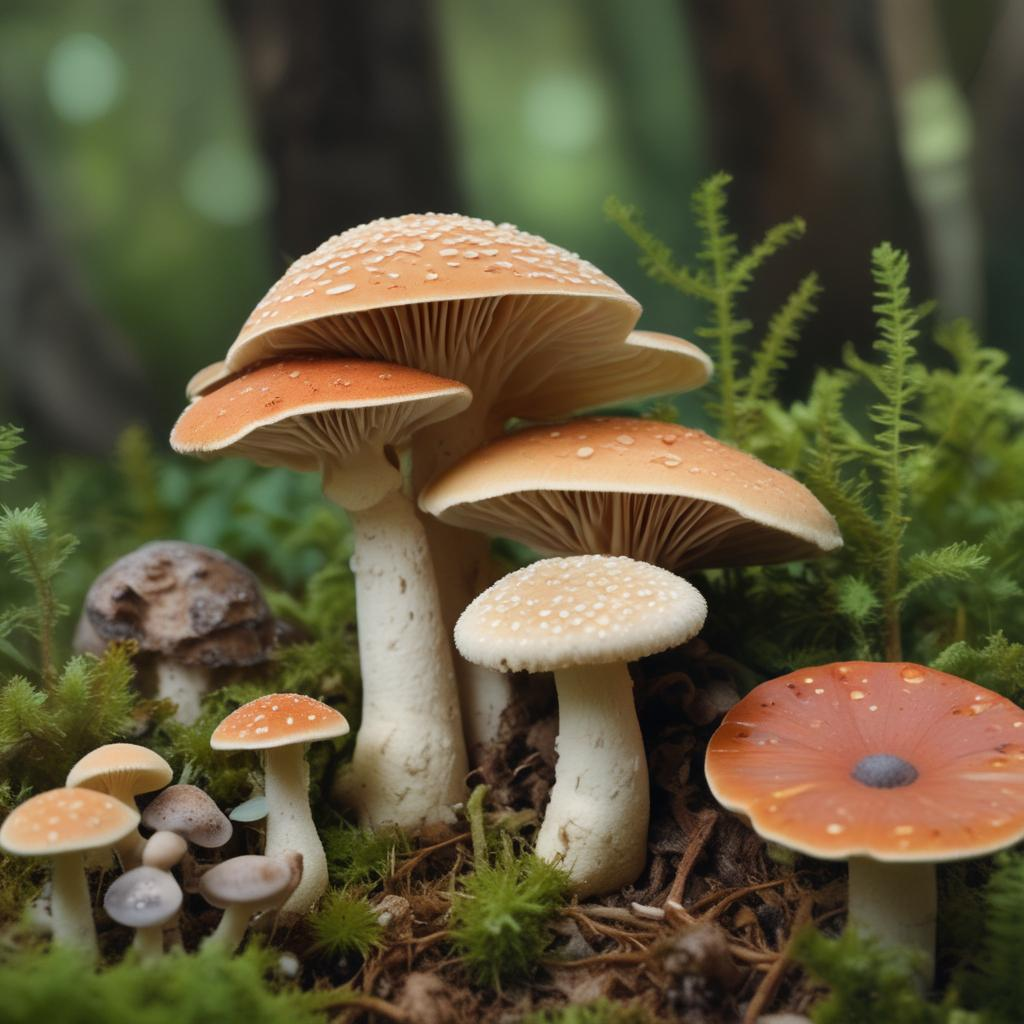What are fungi, and why are they important to biodiversity?
Fungi are a kingdom of organisms that are crucial to Earth's ecosystem. Unlike plants, they do not perform photosynthesis and instead obtain nutrients from organic matter. Fungi play key roles in decomposition, nutrient cycling, and symbiotic relationships with plants, aiding in their growth and health. Some common examples of fungi include mushrooms, molds, and yeast. Their ability to break down organic materials makes them pivotal in maintaining the balance of ecosystems by recycling nutrients that other organisms can then utilize.

How do fungi contribute to biodiversity?
Fungi contribute to biodiversity in several significant ways. They act as decomposers, breaking down dead organic matter, which not only prevents the accumulation of waste but also recycles nutrients back into the soil, supporting new plant growth. Furthermore, many plants rely on symbiotic relationships with fungi, known as mycorrhizae, to enhance their nutrient absorption. Fungi also aid in the survival of plants by protecting them from pathogens and helping them withstand environmental stresses. By enabling stronger and more diverse plant populations, fungi inherently support wider ecological networks that sustain various animal species.
Can fungi affect plant diversity and productivity?
Yes, fungi have a profound impact on plant diversity and productivity. Through their symbiotic relationships, particularly mycorrhizal associations, fungi extend the root systems of plants, improving their ability to access water and nutrients such as phosphorus and nitrogen. This relationship not only promotes plant health and growth but can also influence the spatial distribution of plants, allowing a diverse range of plants to thrive in an area. Increased plant diversity naturally leads to more habitats and food sources for a variety of animal species, enhancing overall ecosystem resilience and productivity.
What role do fungi play in combating climate change?
Fungi significantly contribute to the carbon cycle, a key process in mitigating climate change. Through their activities in decomposing organic matter, fungi release carbon dioxide back into the atmosphere but also store carbon in the soil, promoting soil carbon sequestration. Some fungi can degrade pollutants and improve soil health, enhancing the growth of vegetation that serves as carbon sinks. Moreover, healthy fungal populations ensure robust plant ecosystems, which are essential in reducing carbon dioxide levels through natural processes.
Are fungi under threat, and what would be the consequences of their decline?
Like many organisms, fungi are under threat from human activities, including deforestation, pollution, and climate change. The decline in fungal populations can severely disrupt the nutrient cycles and symbiotic relationships they maintain, leading to diminished plant growth and health. This in turn affects entire food webs and can lead to reduced biodiversity. Protecting fungal habitats is essential to sustaining ecosystems services that benefit all life forms.
How are fungi being used in scientific research and biotechnology?
Scientific research and biotechnology have leveraged the unique properties of fungi for various applications, from environmental to industrial. Bioremediation uses fungi to degrade or remove contaminants in the environment, such as oil spills or pesticides. In medicine, fungi are sources of antibiotics like penicillin, as well as other pharmaceuticals that are essential in disease treatment. They are also employed in the food industry, in the production of bread, beer, and cheese, where specific fungi are used for fermentation.
What can be done to protect fungal diversity?
Protecting fungal diversity involves several strategies, including conserving their natural habitats, reducing pollution, and mitigating climate change. Education and research are crucial in raising awareness about the roles of fungi in ecosystems and their importance to biodiversity. Additionally, policies that protect old-growth forests and other critical habitats are essential in maintaining healthy fungal populations. Support for citizen science projects and fungal surveys can also aid in monitoring their biodiversity and understanding their ecological roles.
In conclusion, how vital are fungi to our future?
Fungi are not only guardians of biodiversity but also pivotal in supporting life on Earth as we know it. Their roles in ecosystems are complex and irreplaceable, contributing to nutrient cycling, plant diversity, and combating climate change. Future efforts in conservation, research, and technology will undeniably rely on understanding and harnessing the potentials of these remarkable organisms. As such, fungi are essential to preserving the health of our planet and ensuring a sustainable future for all species, including humans.


.jpg)






.jpg)



0 Comments